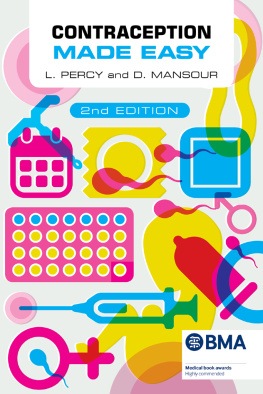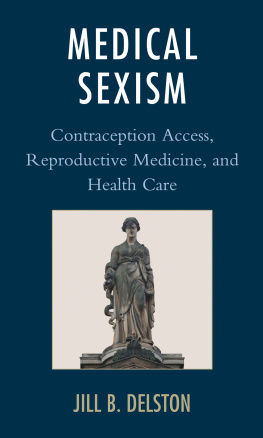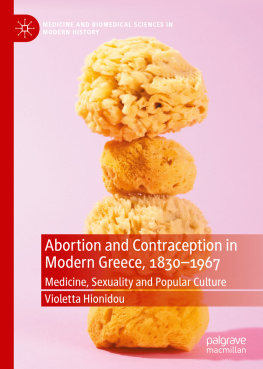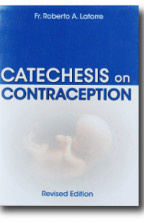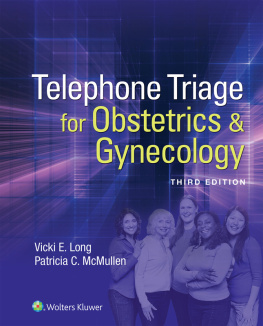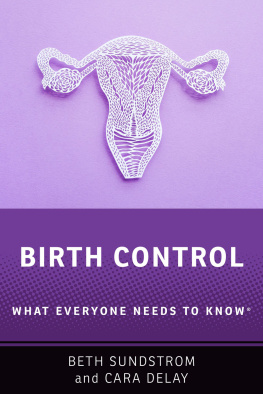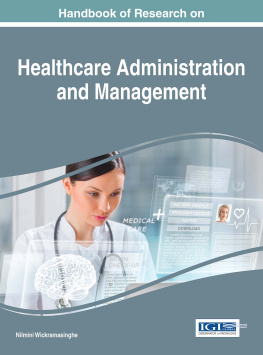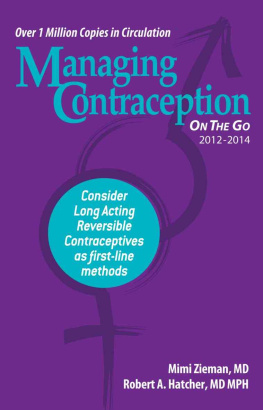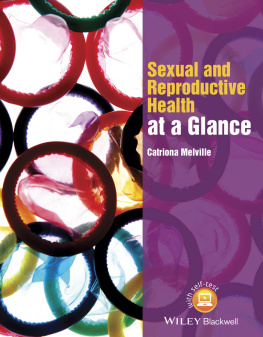Appendix
Summary of the UKMEC for contraceptive use
Reproduced under licence from FSRH. Copyright Faculty of Sexual and Reproductive Healthcare 2006 to 2016. The FSRH is the largest UK professional membership organization in sexual and reproductive health working to shape better sexual health for all (www.fsrh.org). The UKMEC summary table was amended in September 2019; changes are shown here in bold.
UKMEC Categories:
1 = no restriction for use
2 = can generally be used but with careful follow-up
3 = not usually recommended but may be used after expert clinical judgement and/or referral to a contraceptive specialist
4 = use poses an unacceptable health risk

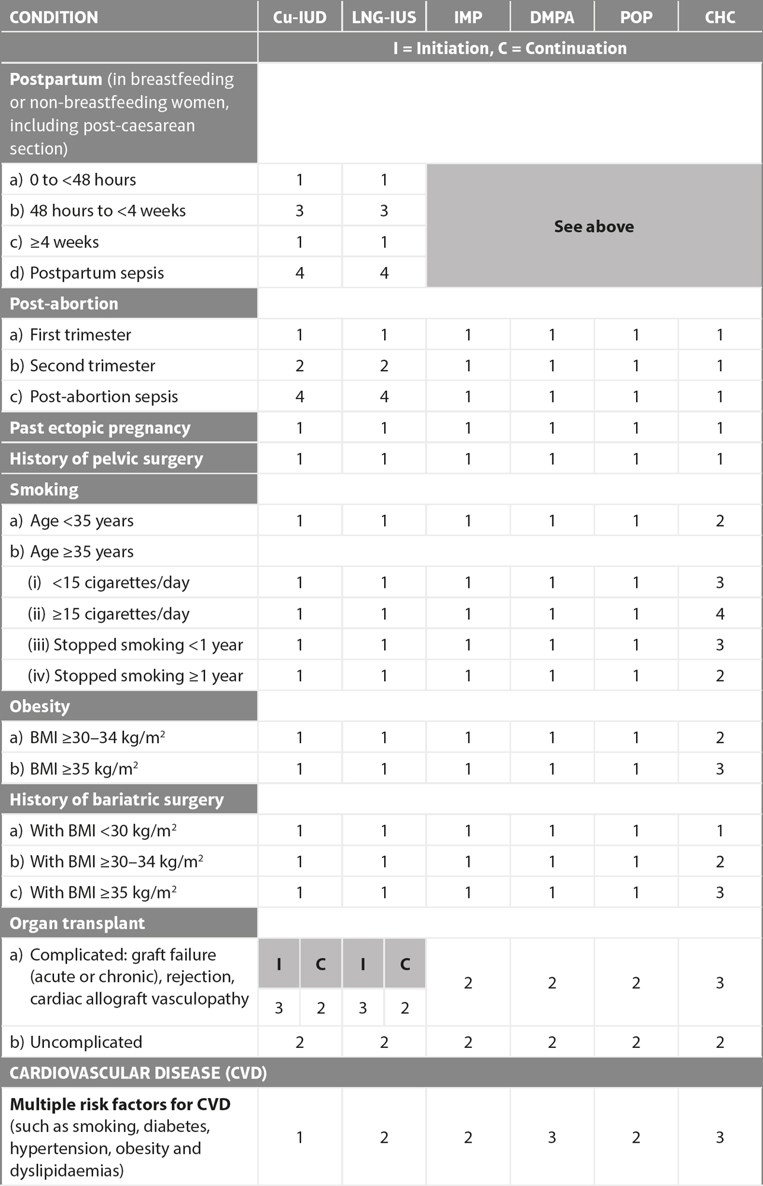






About the authors
Dr Laura Percy qualified as a Consultant in Community Sexual and Reproductive Healthcare, and is currently an Associate Editor of BMJ Sexual & Reproductive Health. She was the winner of the inaugural Anne Szarewski Journal Memorial Award, and has published several articles on Contraception and Womens Health. She completed her MBBS from the University of Newcastle upon Tyne in 2006, began working in contraception in 2008. She has an MSc in Health Education and Health Promotion, and a BSc in Human Biology from Kings College, London. Laura is a qualified psychosexual therapist and has a special interest in this area. She is also very interested in the provision of medical information to the public and professionals, with a particular emphasis on sexual health. Information provision and dissemination is currently the main focus of her work.
Dr Diana Mansour is a Consultant in Community Gynaecology and Reproductive Healthcare in Newcastle upon Tyne, UK. She has been an Associate Clinical Lecturer at Newcastle University since 1997. In addition Dr Mansour is Senior Vice President at the Faculty of Sexual and Reproductive Healthcare in the UK. Diana is the Lead Officer for FSRH Clinical Effectiveness Committee, the Clinical Standards Committee, the Clinical Studies Group and FSRH Journal (BMJ Sexual & Reproductive Health).
Dr Mansour was the first accredited subspecialty trainee in Community Gynaecology and Reproductive Healthcare of the Royal College of Obstetricians and Gynaecologists.
She is first author to over 90 peer-reviewed publications. Her areas of expertise include acceptability of contraceptive methods, non-contraceptive benefits of contraception, development of long-term methods of contraception, changes in health service provision, medical management of heavy menstrual bleeding and management of the menopause.
1.1 Introduction
This short book provides up-to-date information, often in note form, about the commonly used contraceptive methods available in high resource countries and is aimed at healthcare professionals working in primary, community and secondary services. The books content is based on guidance from the Faculty of Sexual and Reproductive Healthcares Clinical Effectiveness Unit and the National Institute for Health and Care Excellence. References will appear at the end of each chapter when specific studies or reviews are mentioned.
Chapter 2, covering the consultation, explores the necessary points to discuss when seeing couples about contraception, including their ideas, concerns and expectations. Chapter 3 looks in more detail at the provision of contraception to special groups such as young people and those with learning difficulties. Each method will then be examined in turn, with information identifying potential users of the method, how it works, its efficacy, the advantages and disadvantages, how to start and stop the methods (where appropriate) plus the management of troublesome side-effects. The book concludes with two chapters on screening women for asymptomatic sexually transmitted infections (STI) and managing unplanned pregnancies.

